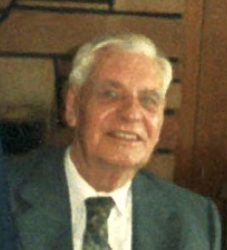 CMOS Awards
CMOS Awards Information about each award, including how to submit nominations, can be found by clicking below.
Learn about the Society's scholarships .
Click here for information about the Society's free summer programs for K-12 teachers.
 J.P. Tully Medal in Oceanography
J.P. Tully Medal in Oceanography
Nominations are to be received no later than 15 February by the Awards Coordinator at e-mail: awards-coord@cmos.ca or the Society postal address to be considered by the selection Committee.
- Nomination letters should include the current title, full address and phone number of the nominee.
- An up-to-date CV and a summary of the candidate's work must be included.
- The nomination should be accompanied by (at least one and at most four) additional letters of support indicating the extent of influence of the candidate's work.
- Nominees in previous years who have not received awards may be re-nominated. All criteria provided above apply to re-nominations.
- The Committee has a policy of automatically considering nominations (kept on file) submitted the preceding year , without the need for re-nomination documents. Nevertheless, nominators are strongly encouraged to re-affirm and/or update these nominations.
- Electronic format (e.g., pdf) is preferred; however, hard-copy material will be accepted.
- Receipt of submissions will not be acknowledged unless requested. Acknowledgement when requested will be by e-mail
The following are excerpts from his biography.
John (Jack) Patrick Tully, known as "The Father of West Coast Oceanography" in Canada, was born in Brandon, Manitoba on 29 November 1906 and was brought up in Winnipeg, Manitoba. he died in Nanaimo, BC 19 May 1987.
In 1931, he graduated from University of Manitoba with a B. Sc in biology and chemistry and was recruited as an assistant to Neal Carter, a young chemist and oceanographer working in the Pacific Biological Station in Nanaimo. He was hired to do chemical assays of the nutritional values of canned fish products but already in his first year he had become involved in oceanographic studies.
In 1932 he recruited five lighthouse keepers to begin daily observations of sea surface temperatures and surface meteorology; a program that expanded to twenty lighthouses and continued to early 2000's. When Dr. Carter left Nanaimo in 1933, Jack Tully became the oceanographer at the Biological Station; a position he retained until his retirement in 1969.
Tully and colleagues conducted the first offshore oceanographic survey on the Pacific margin of the Americas, occupying more than 100 stations between the entrance to the Strait of Juan de Fuca and Queen Charlotte Sound. This was a year before the first surveys of the California Current system began. These surveys gave the first descriptions of the complex current regime over the BC shelf and slope.
In 1939 he began a PhD program under Thomas G. Thompson at the University of Washington. His thesis research was on the oceanography of Alberni Inlet. His research was interrupted by the war, but he completed his PhD in 1948. His thesis, "Oceanography and Prediction of Pulp Mill Pollution in Alberni Inlet" , is considered by many as the first study in which oceanography was applied to a major pollution problem.
Tully returned to the Pacific Biological Station following the war and led the postwar growth in oceanography in western Canada.
In the 1950s, Tully saw the establishment of Ocean Weather Station Papa as an opportunity to extend his array of time series observations to an offshore location and through the water column. The OWS P and line P observations are among the longest set of time series available.
During his career, John Tully received a number of honours including the Coronation Medal of 1953, the Albert Ier de Monaco et la Mer in 1967, the Manley Bendall Prize in 1967 and the Queen's Silver Jubilee Medal. He was a fellow of the Royal Society of Canada.
in 1984, the Department of Fisheries and Oceans named their new oceanographic / hydrographic research vessel, CSS John P. Tully , in his honour.
